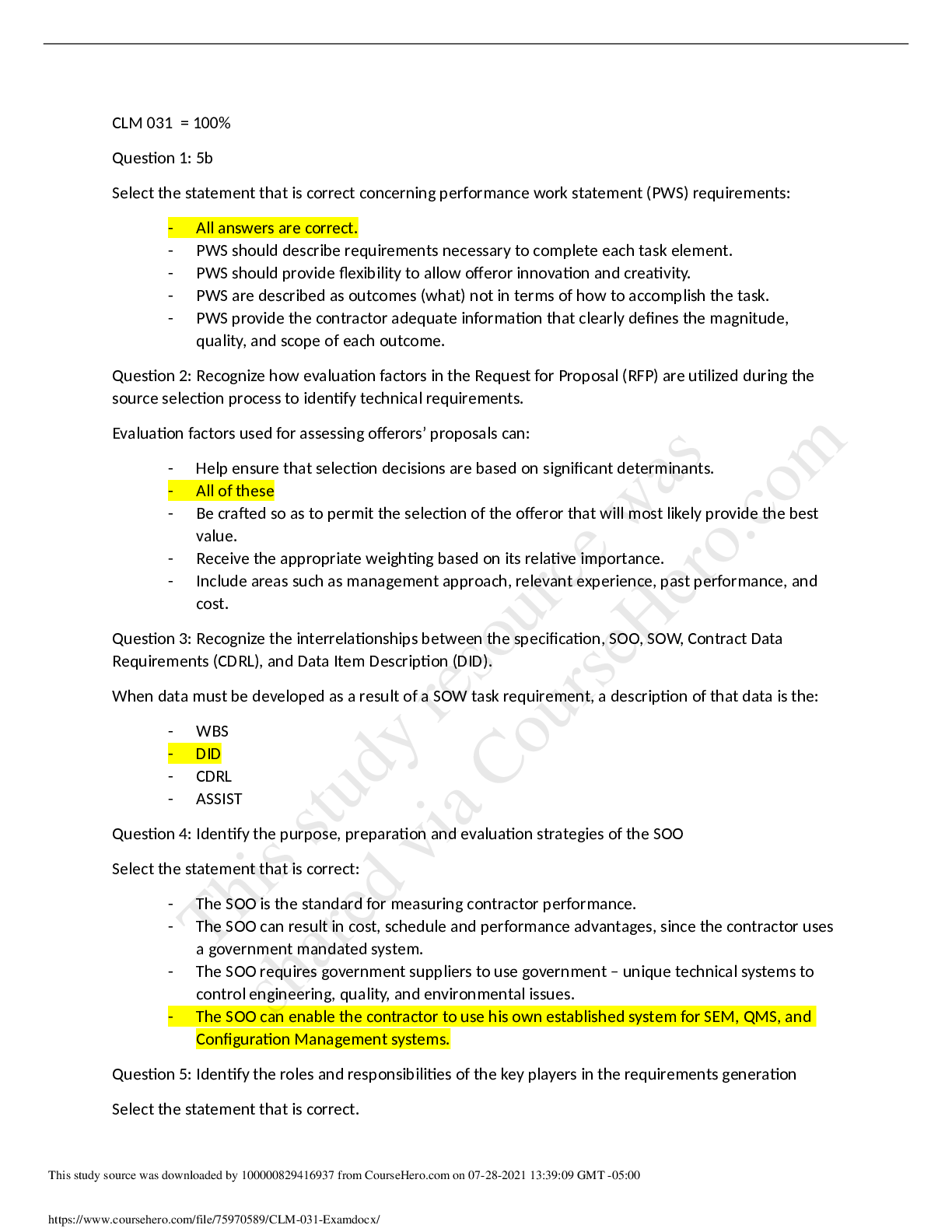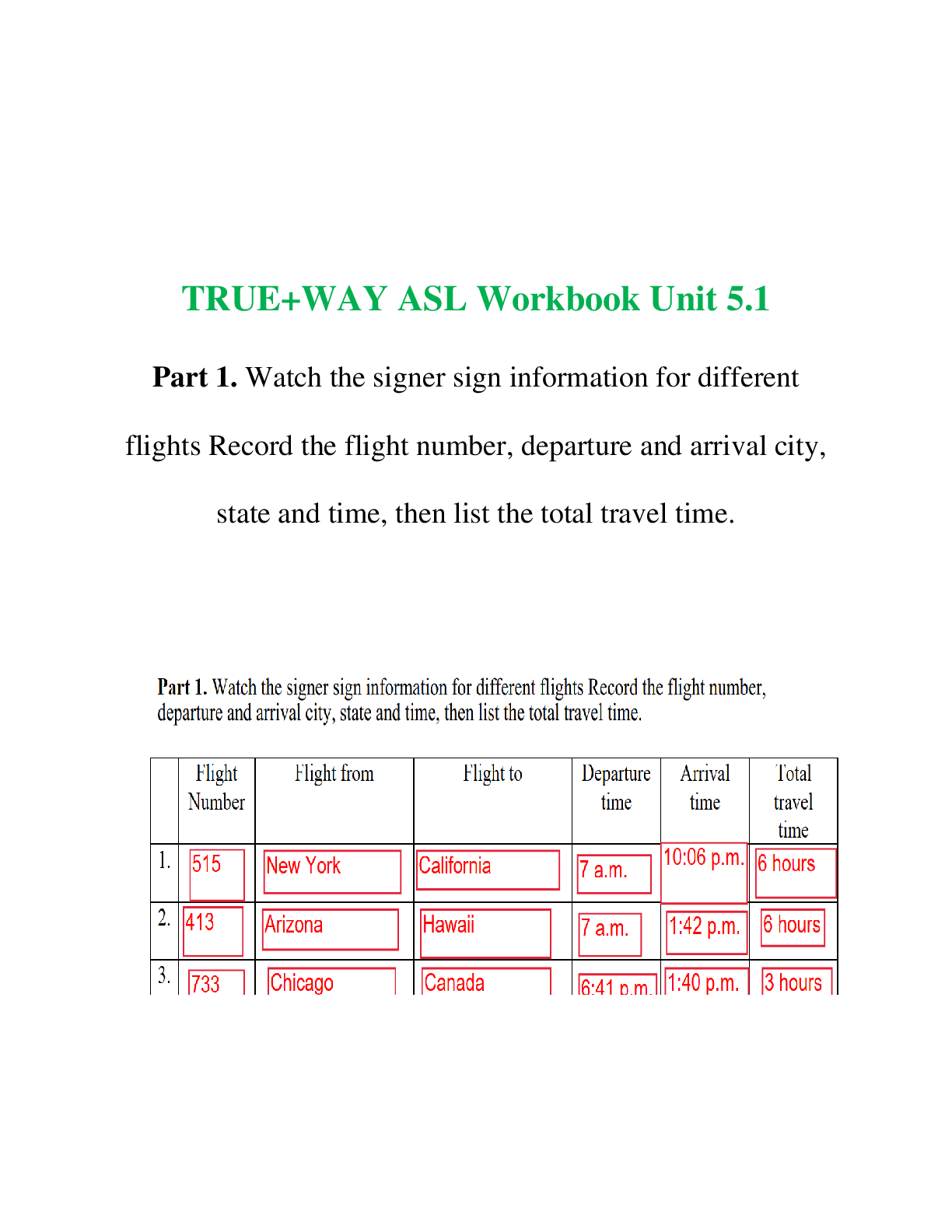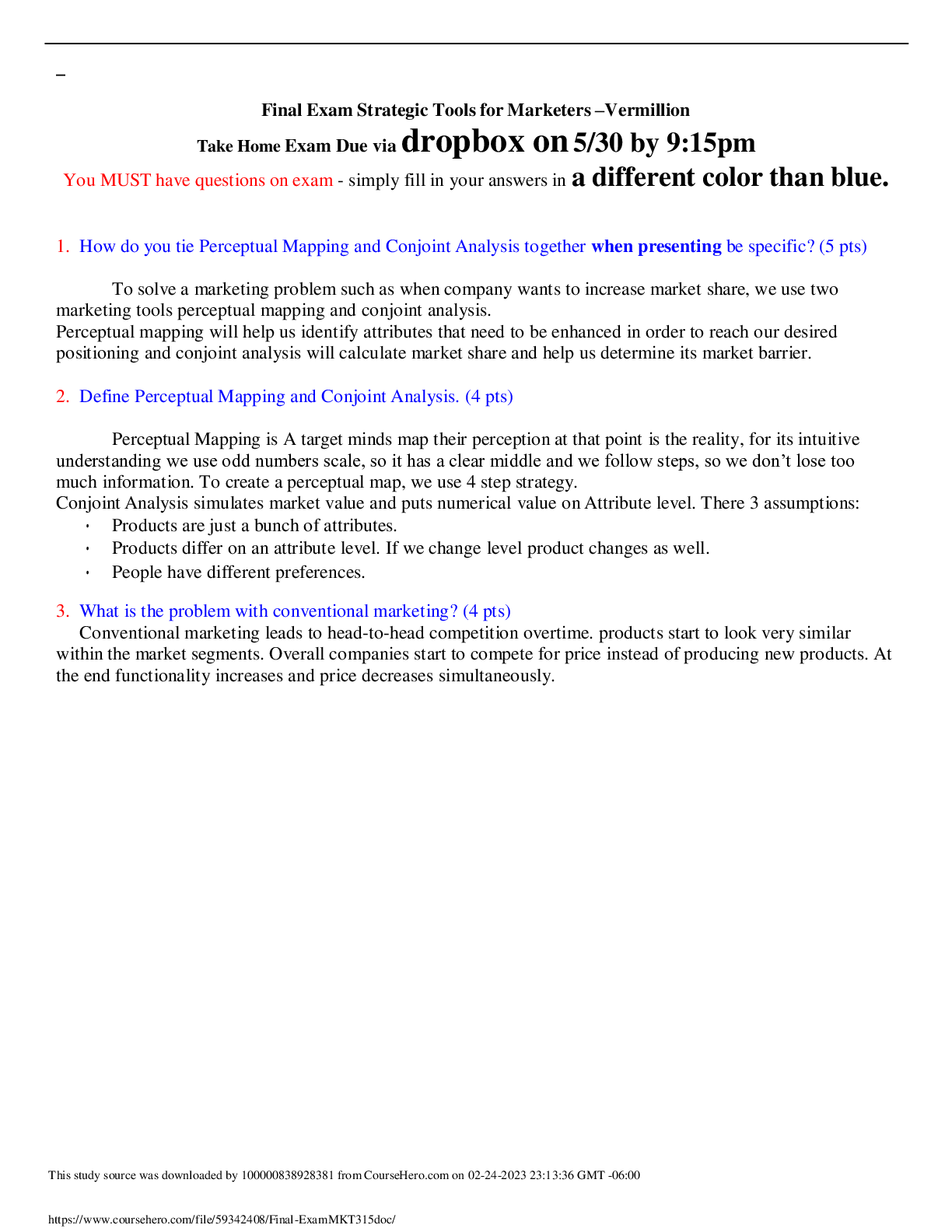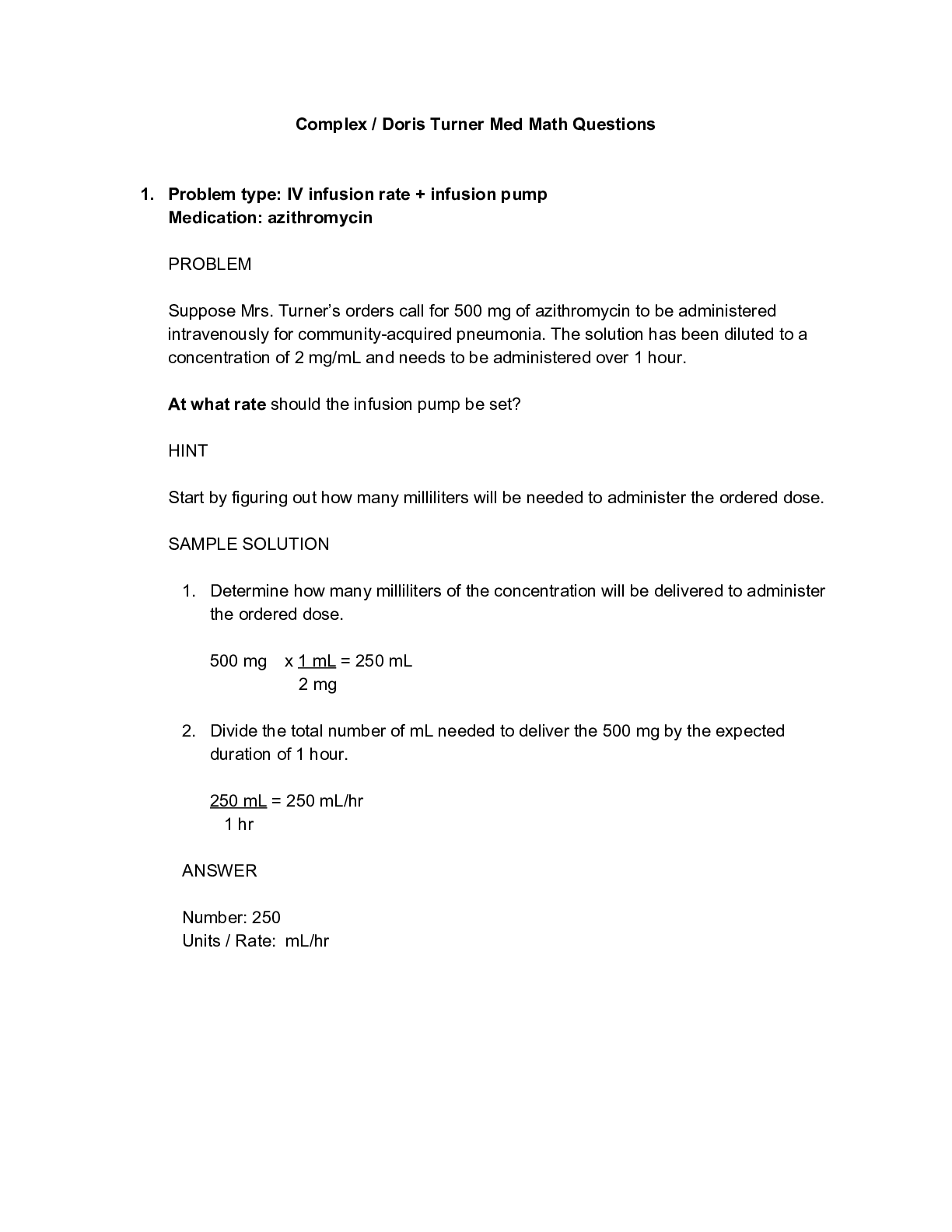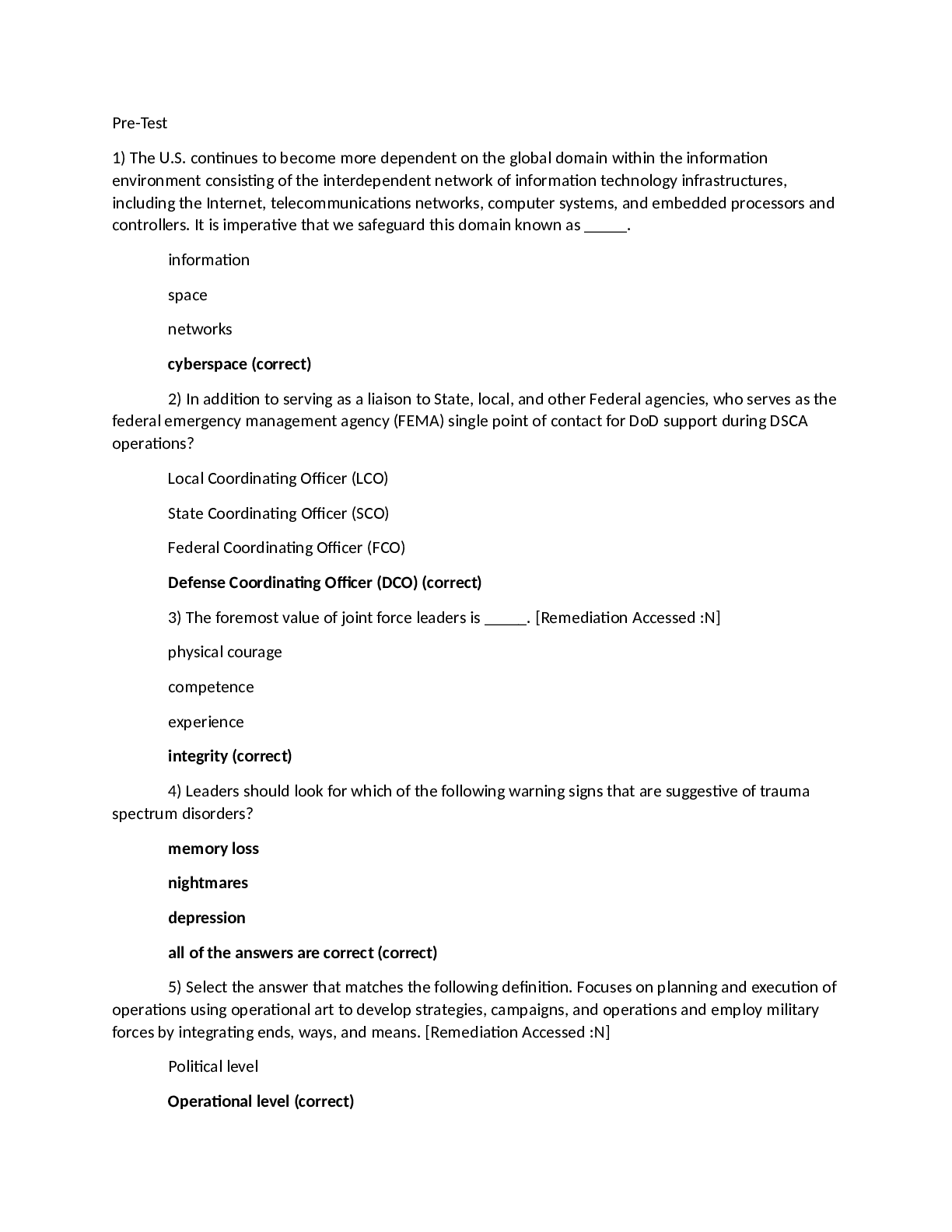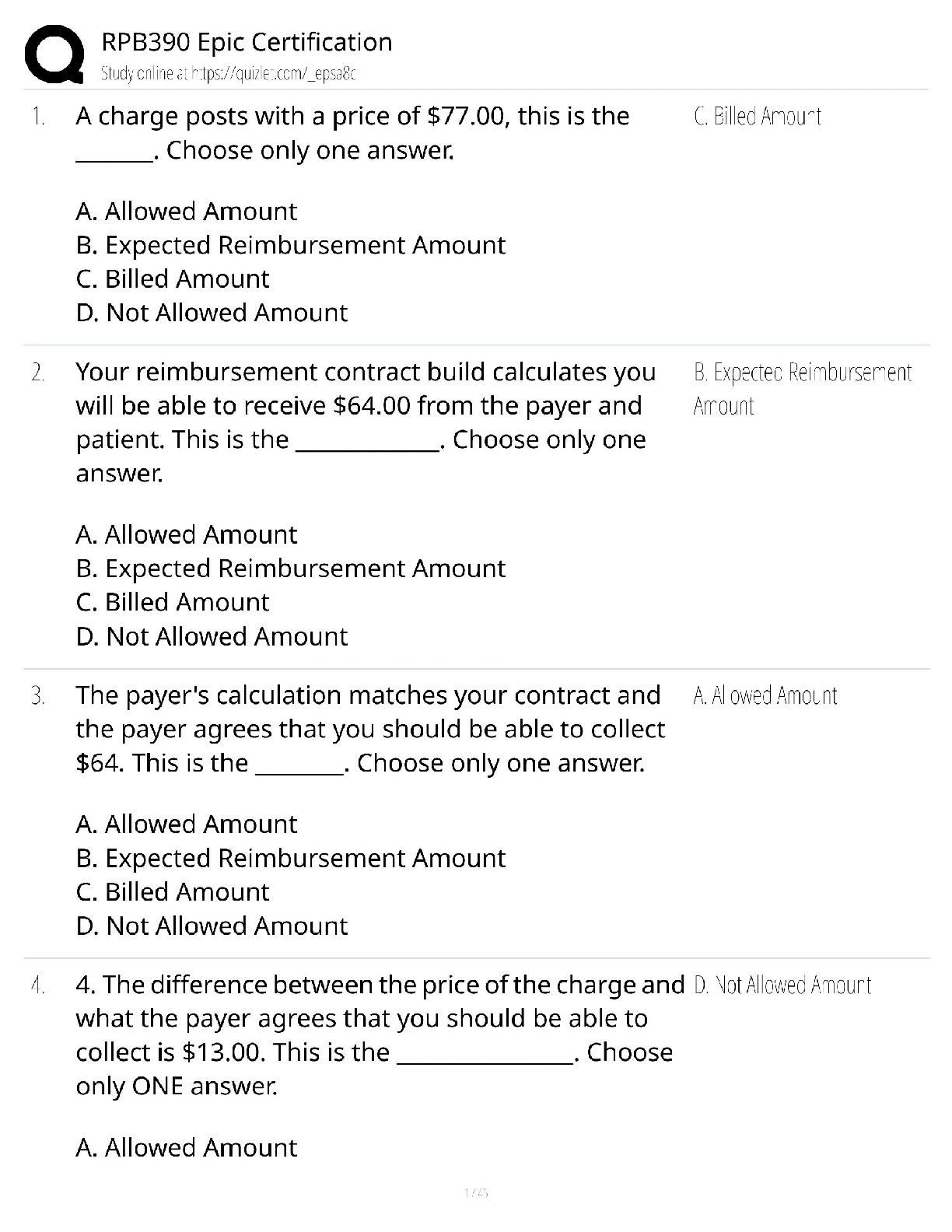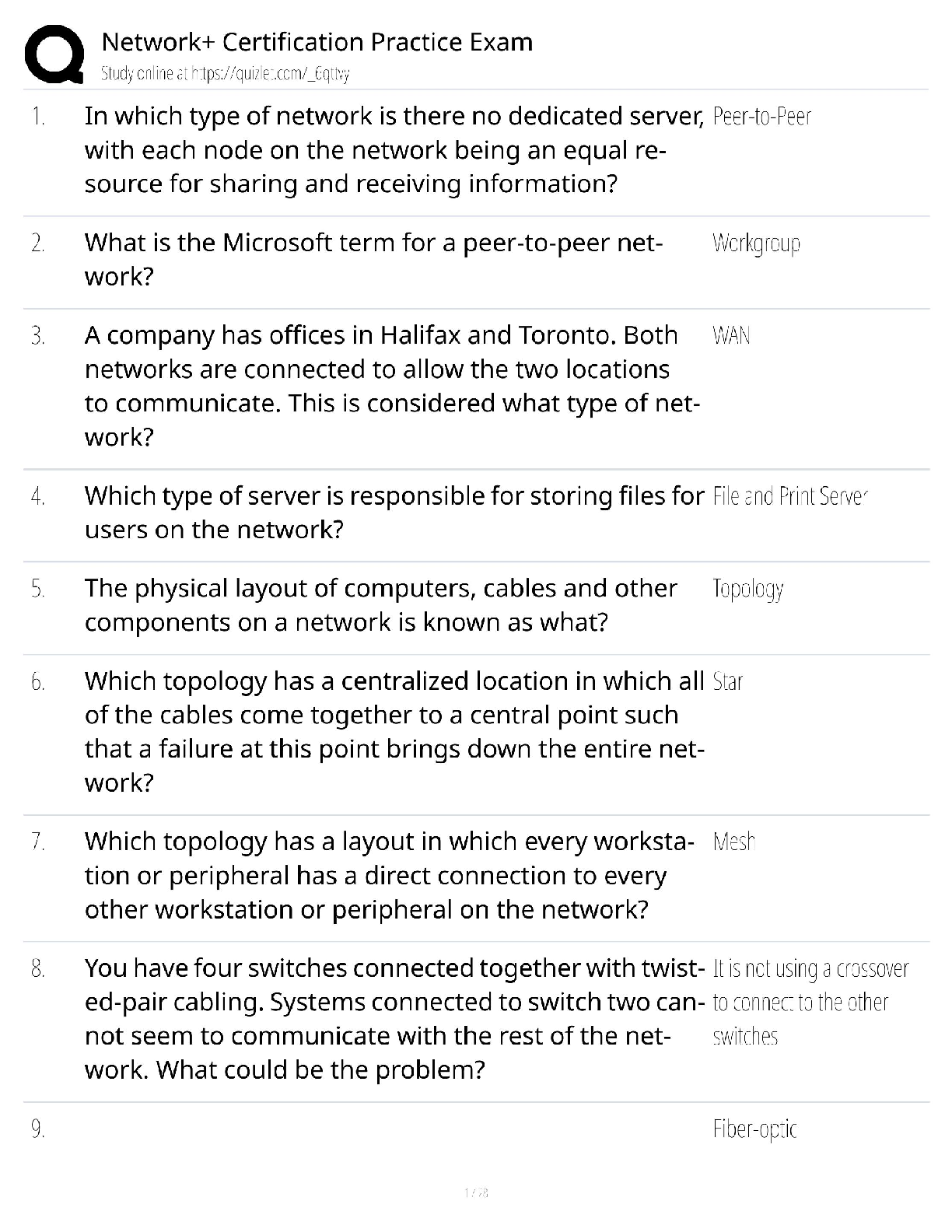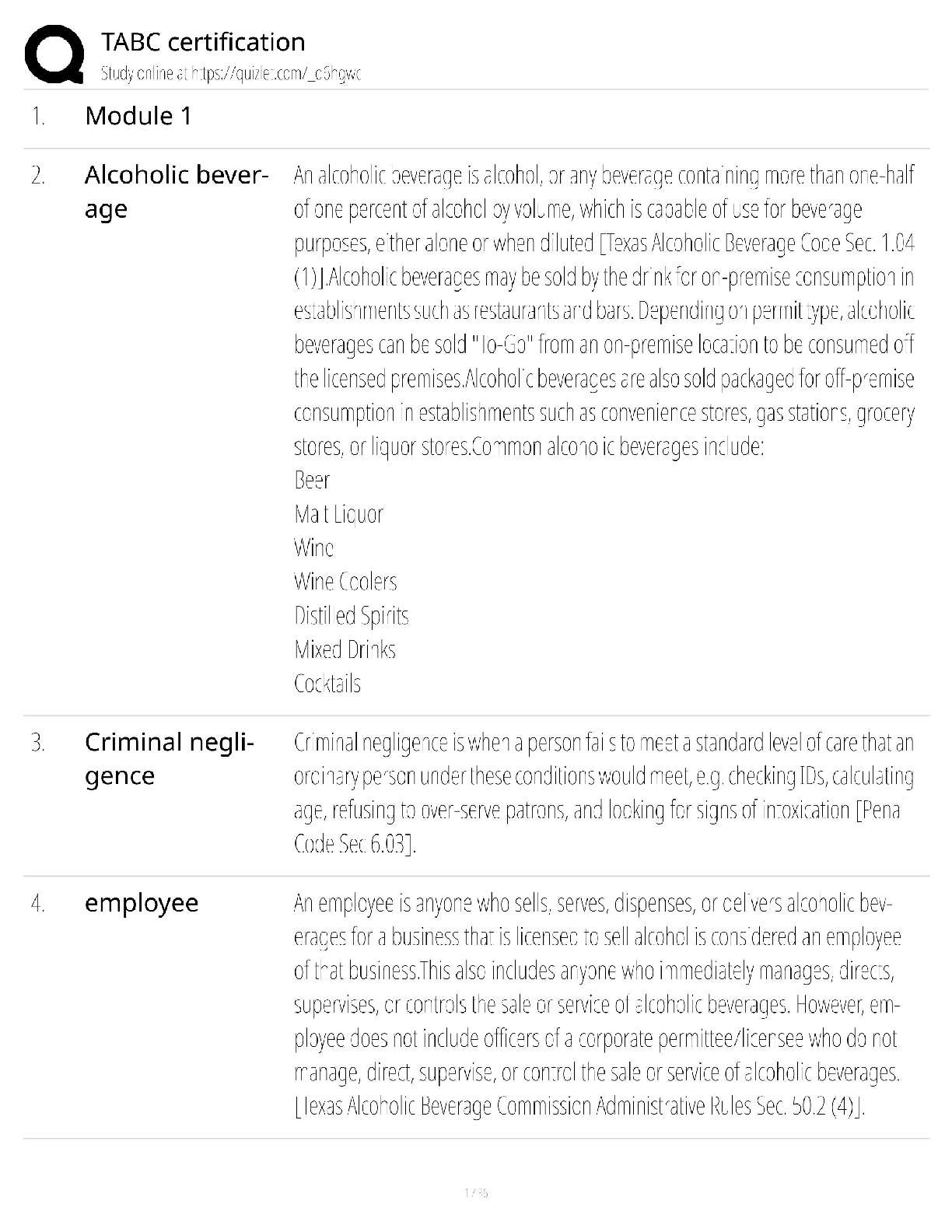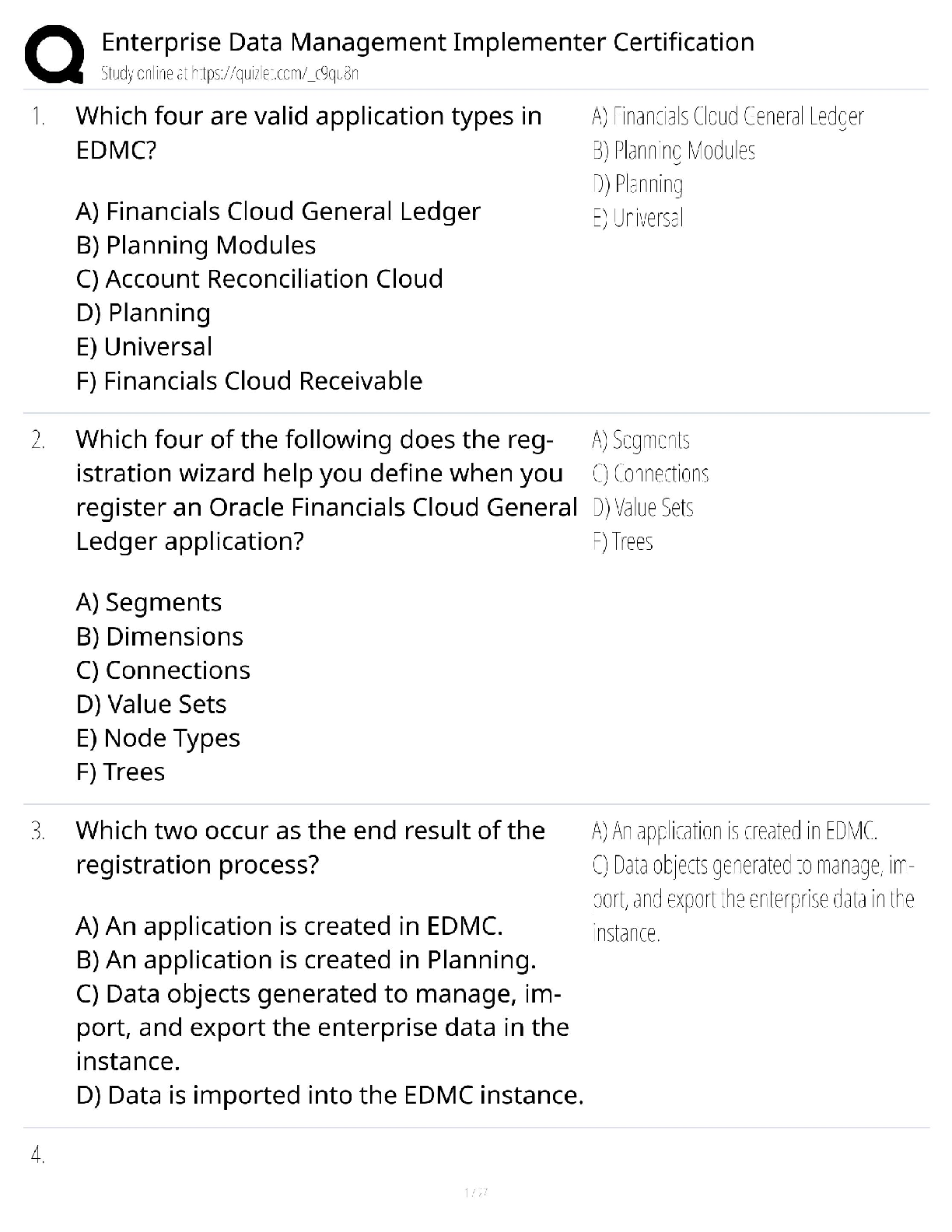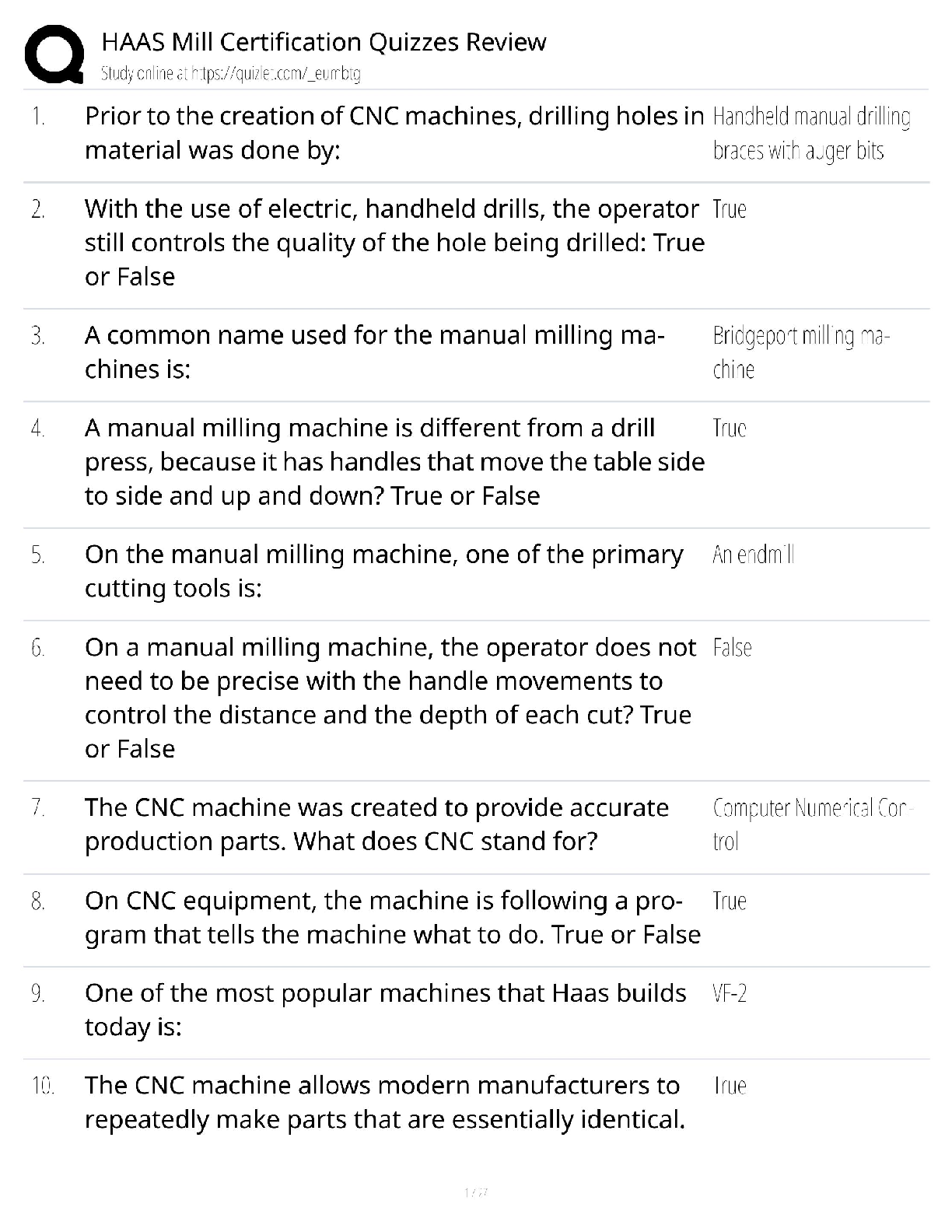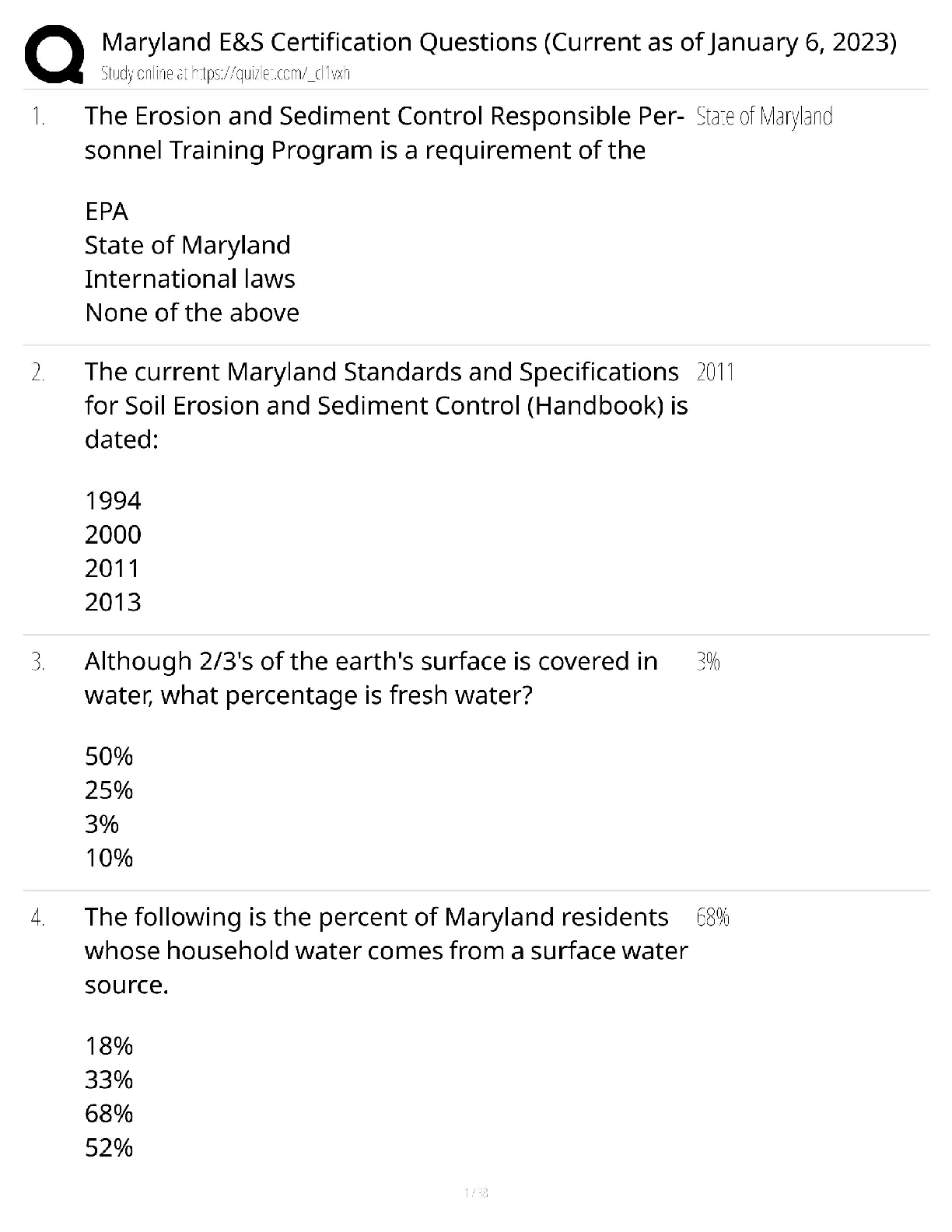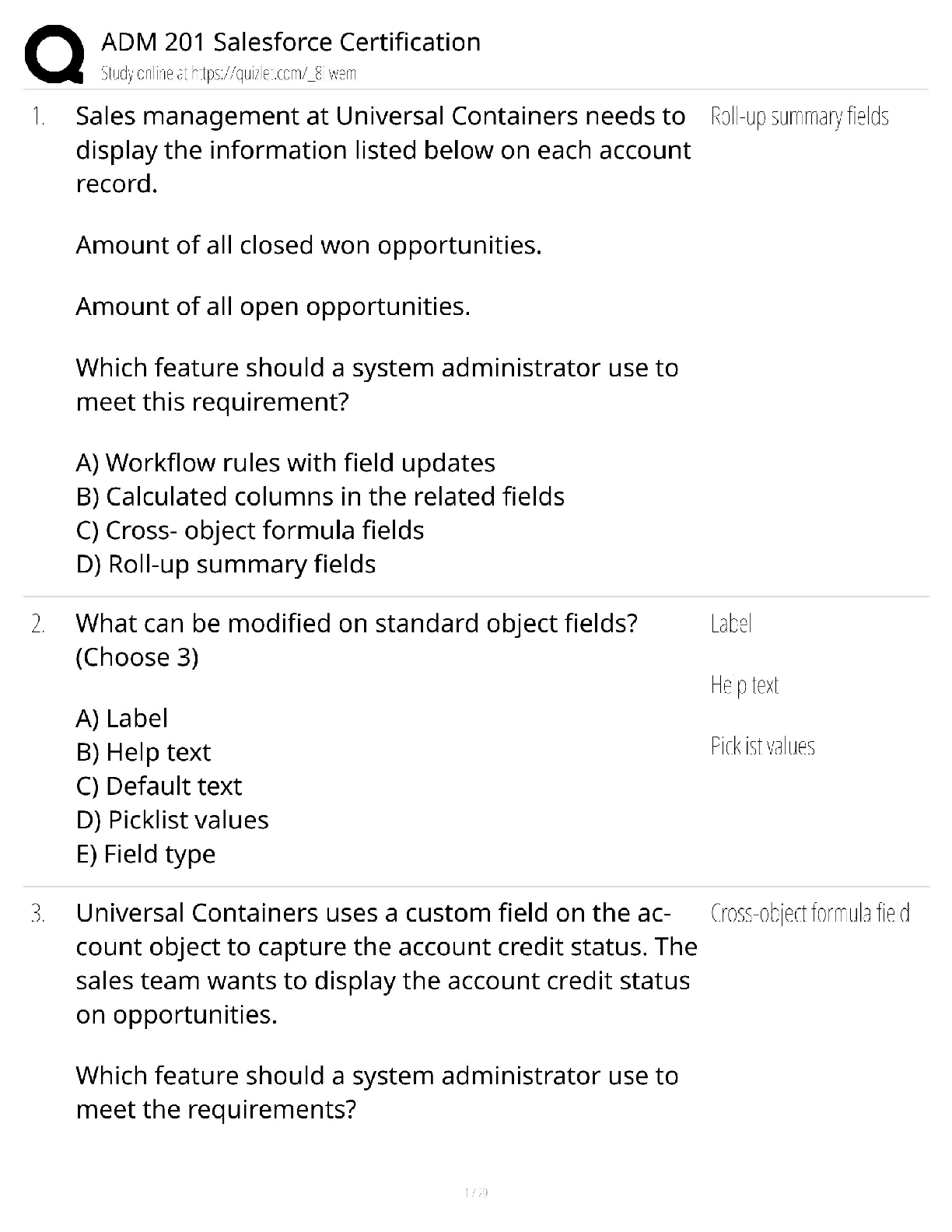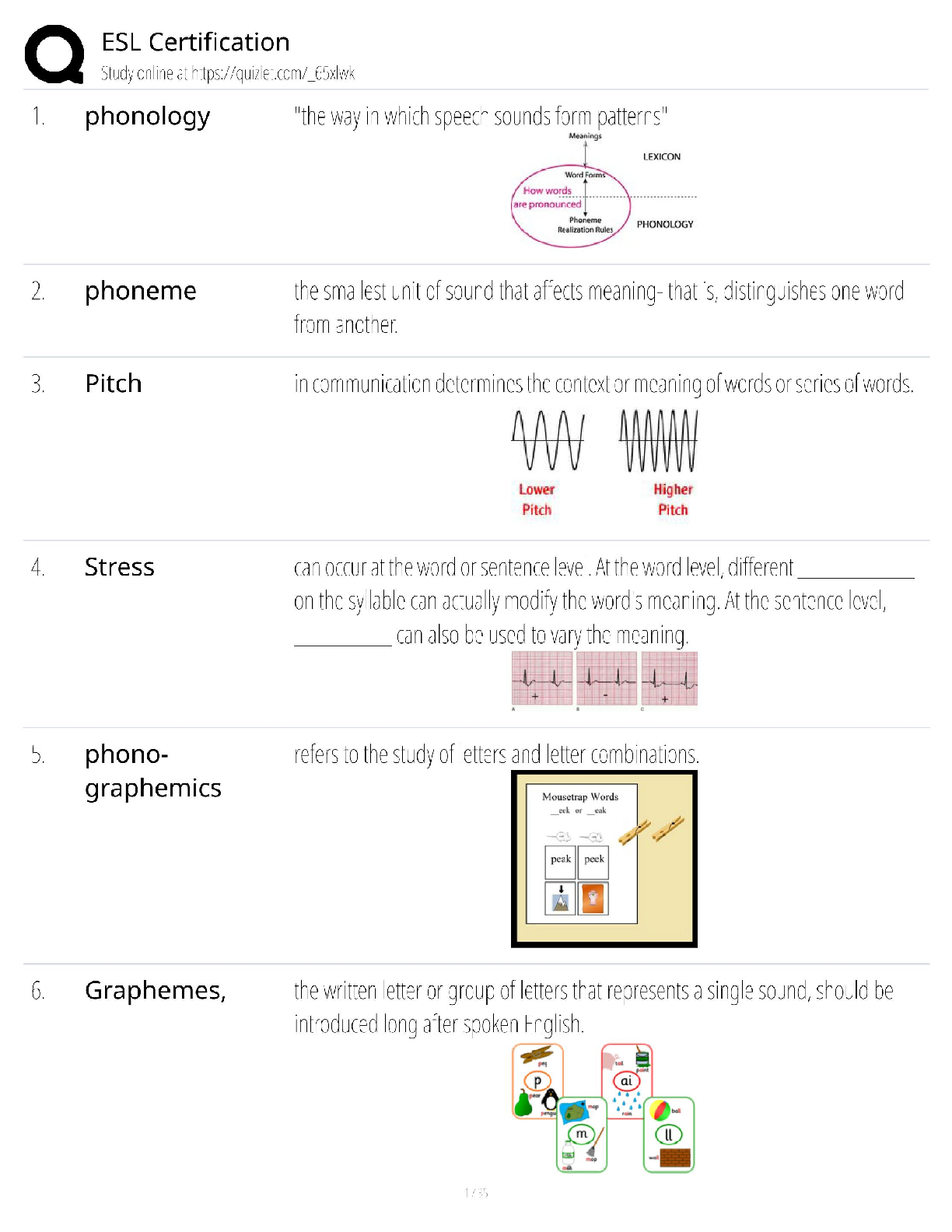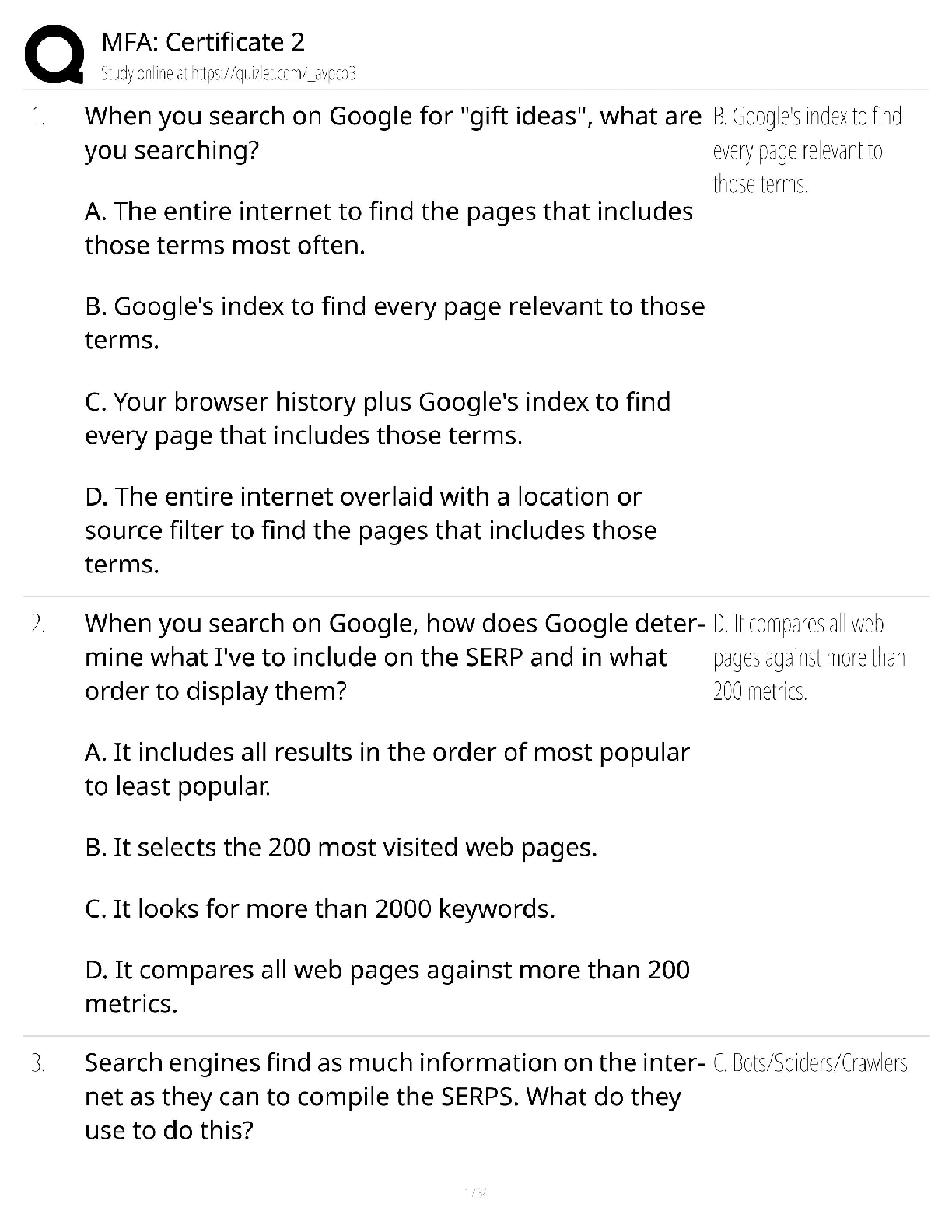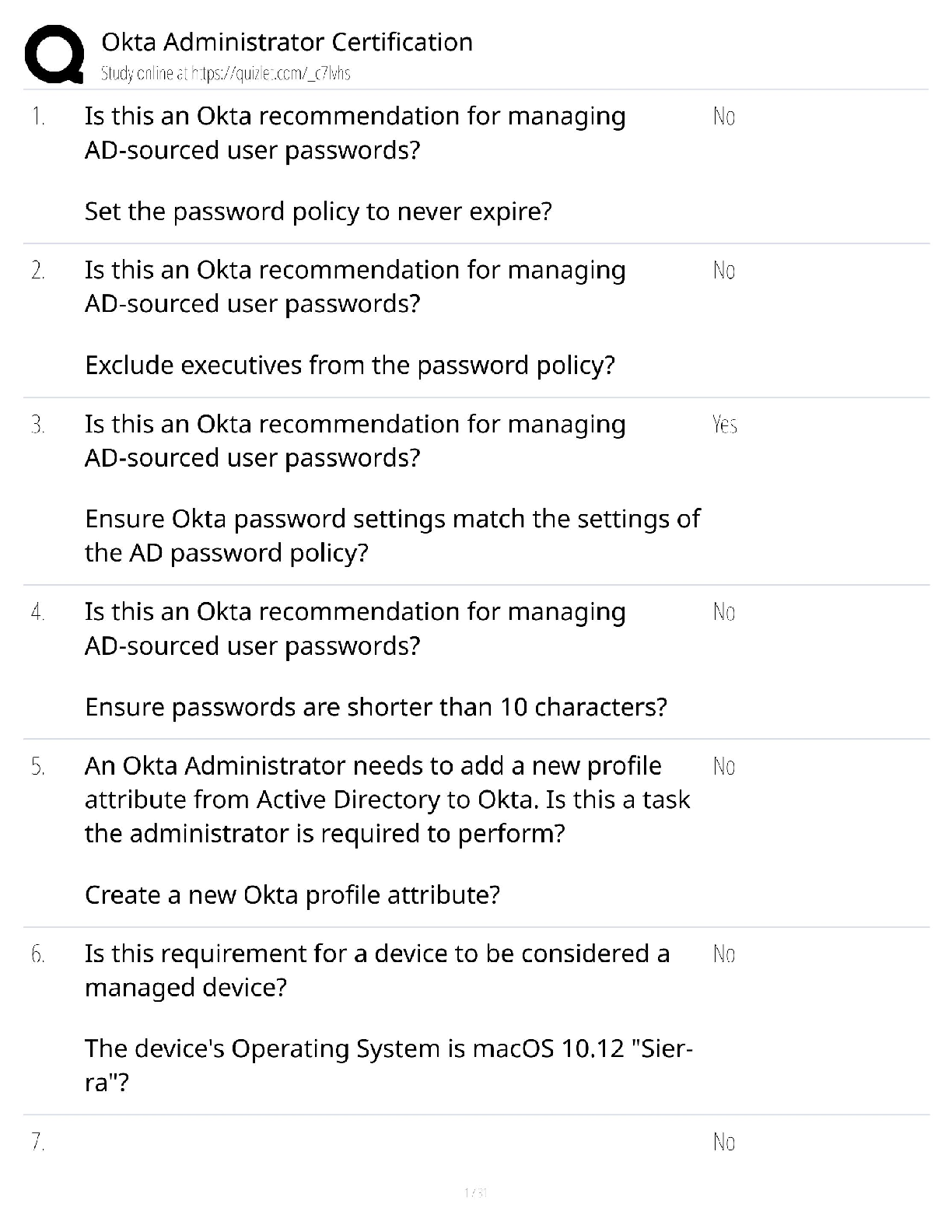*NURSING > QUESTIONS & ANSWERS > NR 6670: MIDTERM EXAMS AND ANSWERS (GRADED A) (All)
NR 6670: MIDTERM EXAMS AND ANSWERS (GRADED A)
Document Content and Description Below
Question 1 0 out of 1 points Sally is a 54-year-old female who presents for care at the urging of her employer. She says that she doesn’t think she needs to be there, but the manager of her divi ... sion at work strongly suggested that she make an appointment. She is the evening shift manager in the accounting department of a major online sales organization. Her role requires meticulous accountability of a complex system of production statistics, and she has done this exceedingly well for years. She has been a valued employee, and her work is above reproach. A few months ago, the company adopted a new software program that required a complete revamping of Sally’s department. She has not adapted well, and her resulting anxiety is almost prohibitive of functioning in her role. During her interview, Sally is very somber and serious, and is clearly having difficulty with this change. She is distraught over the potential of not being able to do her job well and meet her immediate supervisor’s expectations. Recognizing the likely diagnosis, the PMHNP knows that Sally is likely to respond best to: Selected Answer: [None Given] Answers: Pharmacotherapy with clonazepam Free-association, nondirective therapy Interpersonal therapy Serotonergic agents Response Feedback : (b) is the correct answer. These patients often recognize that there is a problem and will do well with this form of therapy, although it is a long and complex process. Clonazepam and serotonergic agents are effective with obsessive-compulsive disorder, but their utility with obsessive-compulsive personality disorder is less clear. Interpersonal therapy is not among the therapeutic modalities with any demonstrated success with this personality disorder. ● Question 2 1 out of 1 points Becci is a 31-year-old female who presents to the PMHNP for evaluation after being referred by her friend who is a patient of the practice. She describes a relatively acute, recent onset of panic attacks. Becci says that “out of the blue” her heart starts to race, her mouth gets dry, she gets shaky, and feels like she cannot get her breath. She is afraid because her friend has panic disorder and Becci knows that before her friend got treatment, she basically would not leave the house in case an attack happened. The PMHNP recognizes that the immediate priority in assessment for Becci is: Selected Answer: A thorough physical examination Answers: A thorough physical examination A family history of mental health disease A urine drug screen An assessment for phobic disorder Response Feedback : (a) is the correct answer. While these are elements of a panic attack, there are a variety of organic conditions that can cause these symptoms. Becci needs a physical examination and appropriate laboratory assessment to rule out physiologic causes of her symptoms, such as thyroid disease. The remaining elements above will all be part of the mental health assessment once physical health is determined. ● Question 3 0 out of 1 points Mrs. Bowen is a 33-year-old female who presents as a new patient requesting medication for depression. She reports a long history of mood disorders on and off going back to adolescence. She is very articulate in describing her history and reports that neither sertraline nor fluoxetine “worked for her.” She was unable to remember the dose or how long she took the medication. With respect to considering Mrs. Bowen’s medication history, the PMHNP knows that: Selected Answer: Some forms of recurrent depression are best managed with nonpharmacologic strategies Answers: An SNRI will likely be the most appropriate choice if pharmacotherapy is indicated for this episode This may be an inaccurate characterization, as depressed patients tend to overemphasize negatives In some circumstances patients will purposefully mischaracterize the efficacy of medications they feel were ineffective Some forms of recurrent depression are best managed with nonpharmacologic strategies Respons e Feedback : (b) is the correct answer. A common mistake among clinicians is to accept the depressed patient’s self-report of medication accuracy. Depressed patients frequently overemphasize the negative and minimize the positive and may genuinely have a misimpression of their medications effectiveness; similarly, unrealistic expectations may skew their impression of medication response. An SNRI may ultimately be the most appropriate choice, but the PMHNP should not base this primarily on the patient’s self-report of SSRI response. This should not be perceived as a purposeful mischaracterization – the patients are not usually trying to misrepresent thing; they are reporting their genuine impression. Finally, recurrent depressions spanning decades will most likely require pharmacotherapy along with some form of nonpharmacologic intervention for best outcomes. [Show More]
Last updated: 3 years ago
Preview 1 out of 43 pages
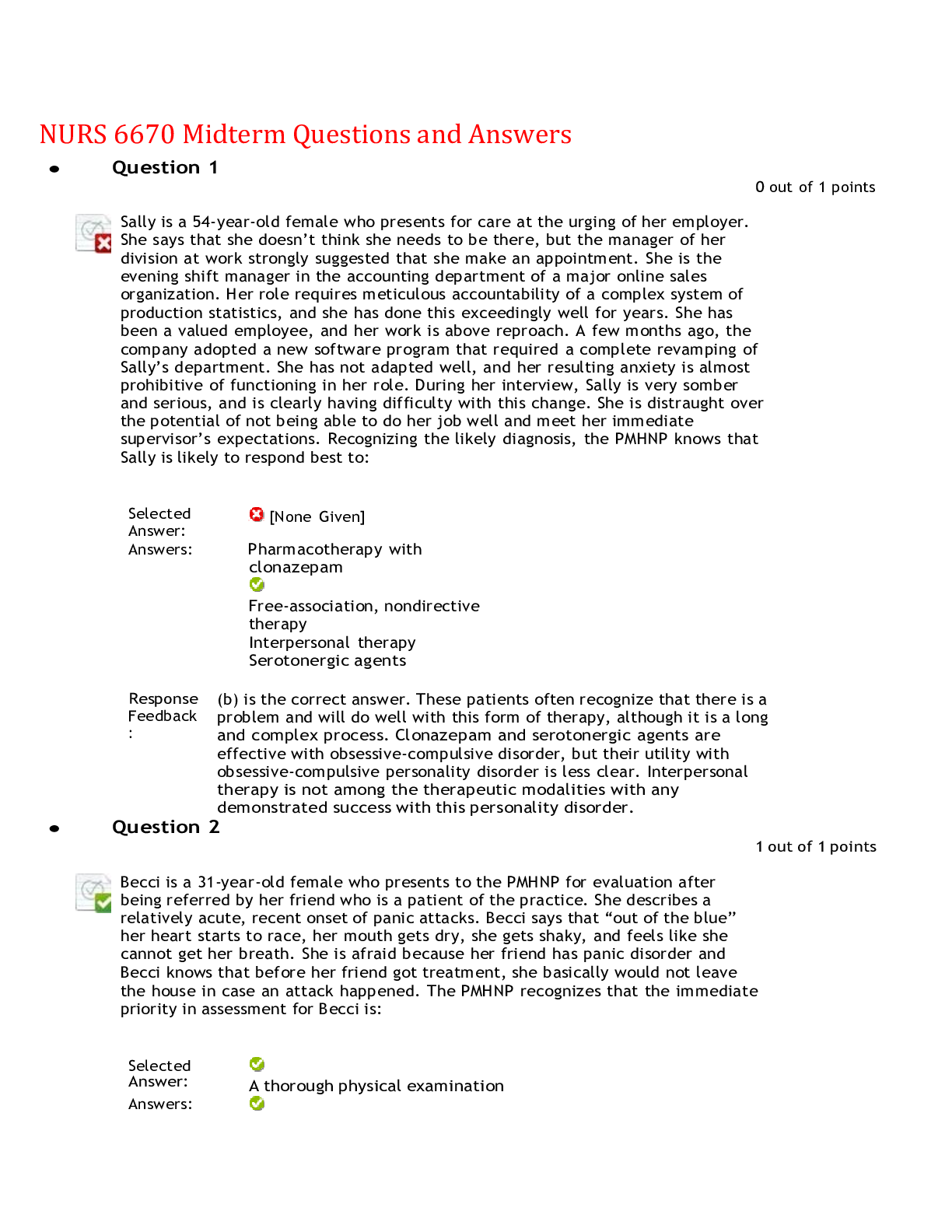
Buy this document to get the full access instantly
Instant Download Access after purchase
Buy NowInstant download
We Accept:

Reviews( 0 )
$14.00
Can't find what you want? Try our AI powered Search
Document information
Connected school, study & course
About the document
Uploaded On
Dec 27, 2021
Number of pages
43
Written in
All
Additional information
This document has been written for:
Uploaded
Dec 27, 2021
Downloads
0
Views
74


